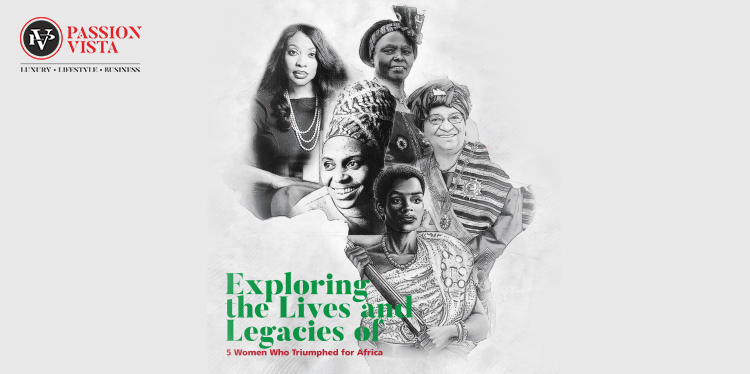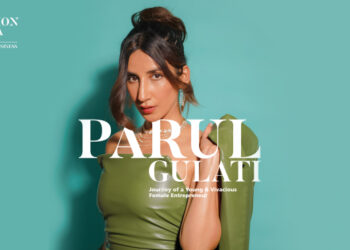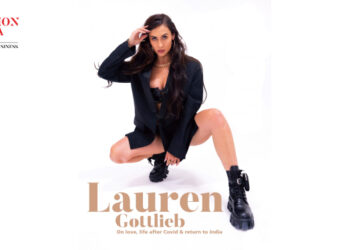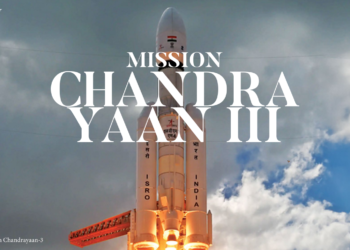The role of women in history has not always been equally represented, yet their contribution cannot be disregarded. We thus trace the journey of 5 women from different countries and industries who not only represent African women through the decades, but also their contribution in the transformation of the continent.
Yaa Asantewaa (Ghana)
Any list of power women in the continent would be incomplete without the mention of Yaa Asantewaa at the very top. Unanimously considered the 1st woman to alter the history of Africa, the ferocious Yaa was the Queen Mother of Ejisu in the Ashanti Empire, now part of modern-day Ghana. Born in 1840 in Besease, Yaa was a mother and a farmer. She was also an intellectual, politician, and human rights activist.
But what made her truly incomparable was that she was a Queen and a war leader, and led the Ashanti war, also known as the War of the Golden Stool or the Yaa Asantewaa War of Independence, against the British Empire in 1900.
Queen Asantewaa’s dream of independence from colonial rule was realized on 6 March 1957, when the Asante protectorate gained independence as part of Ghana. Ghana was the first African nation in West Africa to achieve this feat.
Today, Yaa remains a symbol of strength and courage in Ghana and across Africa.
Miriam Makeba (South Africa)
Miriam Makeba represents two things that are intrinsic to Africa – 1. She was a singer, songwriter, actress, and the 1st global African musician in Afropop, jazz, and world music 2. She was a civil rights activist who advocated against apartheid and white-minority government in South Africa.
Popularly nicknamed ‘Mama Africa’, she was exiled for 30 years during which she released several albums (including the popular ‘Pata Pata’) and won a Grammy Award for Best Folk Recording for her 1965 album ‘An Evening with Belafonte/Makeba’.
Soon she began to write and perform music more explicitly critical of apartheid. She was associated with the movement against colonialism, with the civil rights and black power movements in the US, and with the Pan-African movement. She was one of the most visible and outspoken opponents of South Africa’s apartheid regime from the 1960s till its dismantling in the early 1990s, inspiring thousands along the way.
After apartheid was dismantled, Miriam returned to South Africa. Upon her death, former South African President Nelson Mandela said – ‘Her music inspired a powerful sense of hope in all of us’.
Ellen Johnson Sirleaf (Liberia)
Ellen Johnson Sirleaf is a Liberian politician who served as the 24th President of Liberia from 2006-2018. She was the 1st elected female head of state in Africa, and her appointment paved the way for many others.
Born in 1938, she studied at College of West Africa and completed her education at Madison Business College and Harvard University. She returned to Liberia as Deputy Minister of Finance from 1971 to 1974. In 2005, she won the presidential election, and was re-elected in 2011. The same year saw her win the Nobel Peace Prize in recognition of her efforts to bring women into the peacekeeping process.
With a legendary political prowess, she is internationally known as ‘Africa’s Iron Lady’. Forbes listed her as the 51st Most Powerful Woman in the World 2006; Newsweek named her among 10 Best Leaders in the World 2010; and The Economist called her ‘arguably the best President the country has ever had’.
At 84 years of age, she continues her social work through various high-profile positions, as well as her Foundation – the Ellen Johnson Sirleaf Presidential Center for Women and Development.
Wangari Maathai (Kenya)
The lovely Wangari Maathai holds the distinction of being the 1st African woman to win a Nobel Peace Prize. A Kenyan environmentalist, activist, academic and author, Wangari was the Founder of the revolutionary ‘Green Belt Movement’.
In the 1970s, Kenyan women reported that their streams were drying up, their food supply was less secure, and they had to walk further and further to get firewood. Wangari encouraged them to plant lines of trees, or ‘greenbelts’. The movement paid women for every tree planted which survived past three months. In this way, she pioneered linking environmental protection with human rights.
In 1984, she was awarded the Right Livelihood Award for ‘converting the Kenyan ecological debate into mass action for reforestation’ and in 2004, she won the Nobel Peace Prize for her contribution to sustainable development, democracy and peace. She took her green movement all across Africa and played a starring role in the continent’s environmental protection, women’s development, and cohesive growth.
An academic and author of several books, Wangari was an intellectual who represented Africa on the global stage and spread awareness about ecology, development, and African cultures.
Mosunmola ‘Mo’ Abudu (Nigeria)
It is easy to judge the progress Africa has made in the international arena with a look at its women leaders such as Mosunmola ‘Mo’ Abudu, who not only chose to return to her homeland, but also contribute to its global outreach.
A Nigerian media mogul, Mo was born in London and moved to Nigeria when she was around 30. Her first step towards bringing Africa in the spotlight was her award-winning talk show – Moments with Mo, that has seen the likes of celebrities, Presidents, Nobel Laureates, and the 67th US Secretary-of-State Hillary Clinton. Next, Mo launched EbonyLife TV, a Pan-African entertainment channel driven by a belief to uplift Africa’s image. The EbonyLife brand grew to include EbonyLife Films and EbonyLife Studios and today, Mo is the CEO of the Ebonylife Group which comprises EbonyLife Media, creators of original African content; EbonyLife Place, a luxury entertainment resort in Lagos; and EbonyLife Creative Academy, a film school in Lagos.
Thanks to her in-depth knowledge of the media industry in Africa, Mo has been invited to join the Academy of Motion Arts and Sciences, making her the first Sub-Saharan African woman to join the Oscars. Described by Forbes as ‘Africa’s Most Successful Woman’, Mo stands tall as an inspiration for the modern African woman – who is smart, confident, and ready to take on the world.











